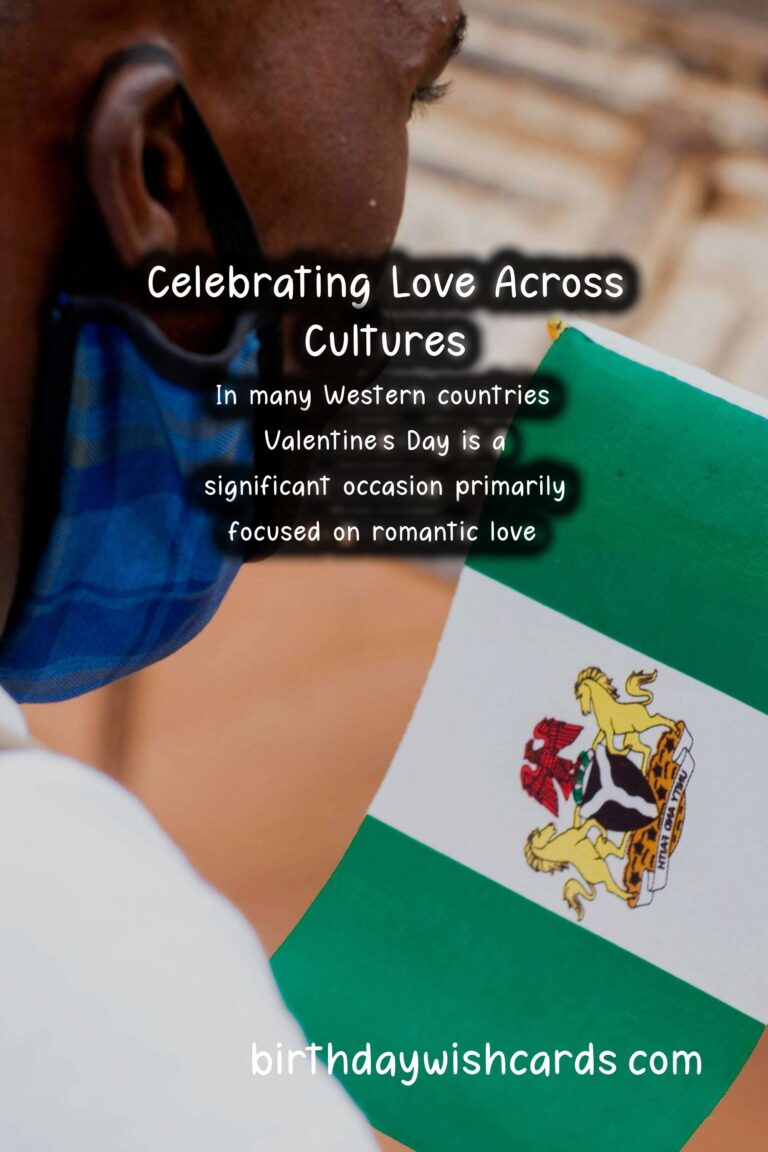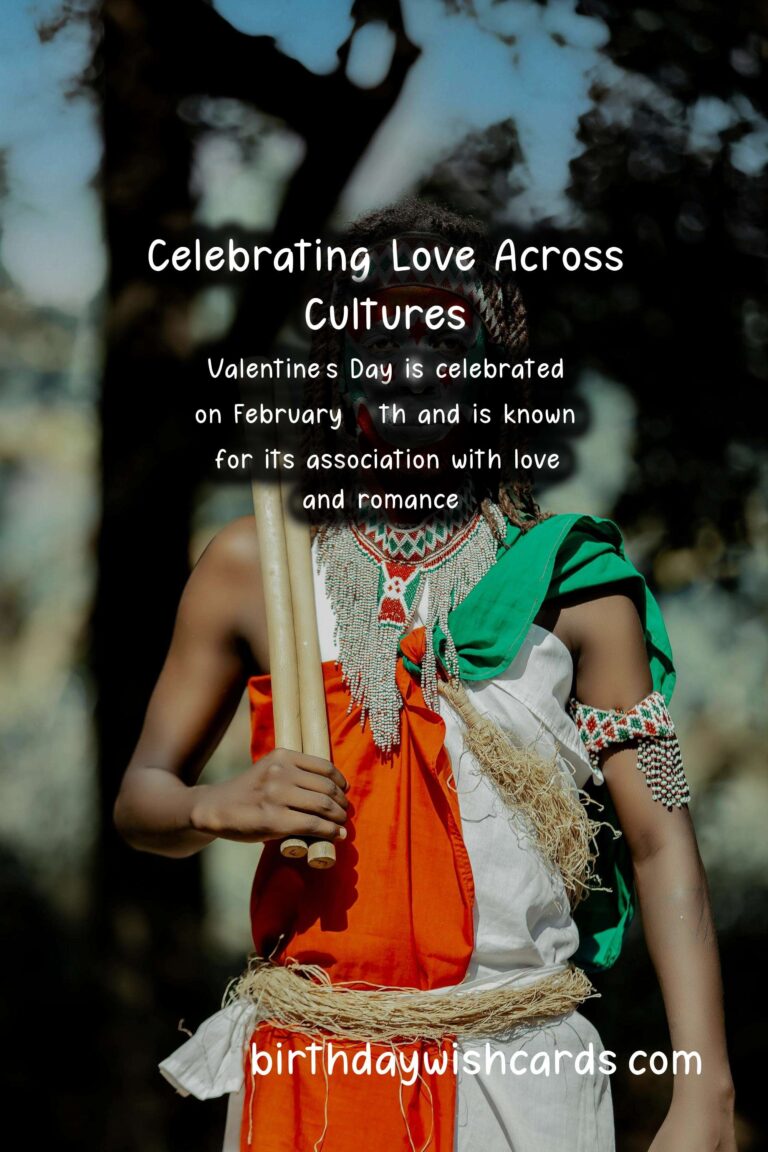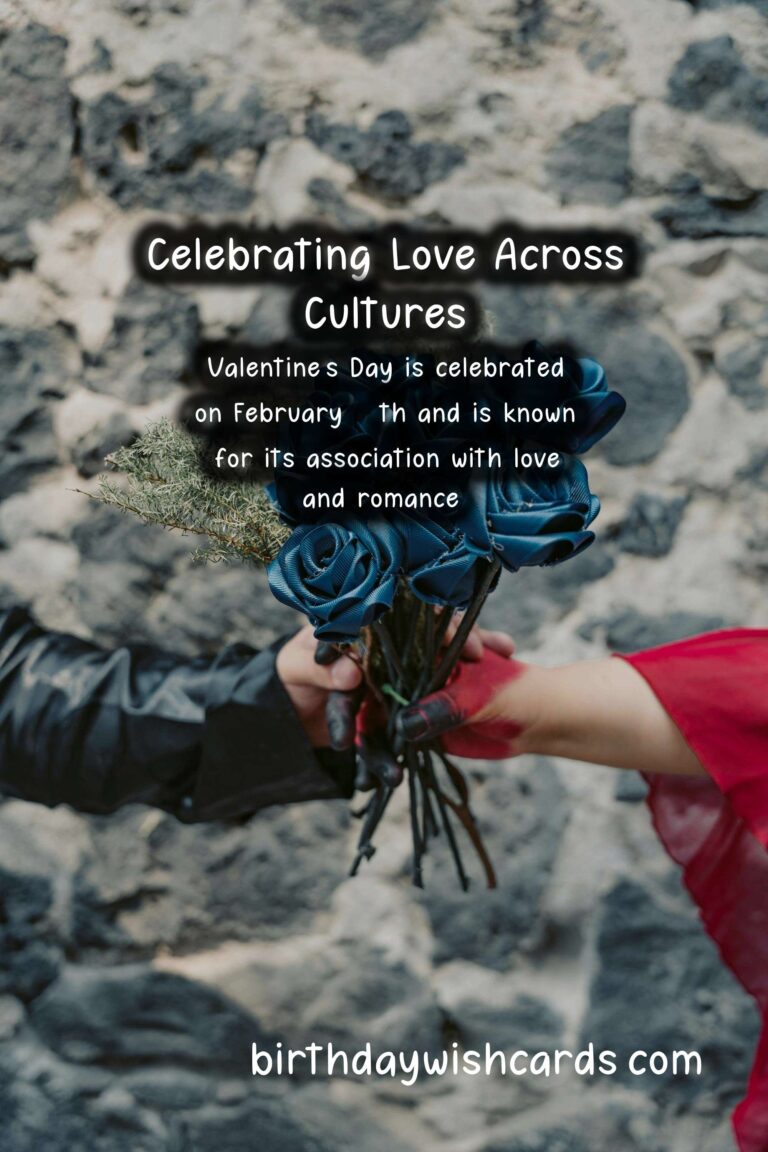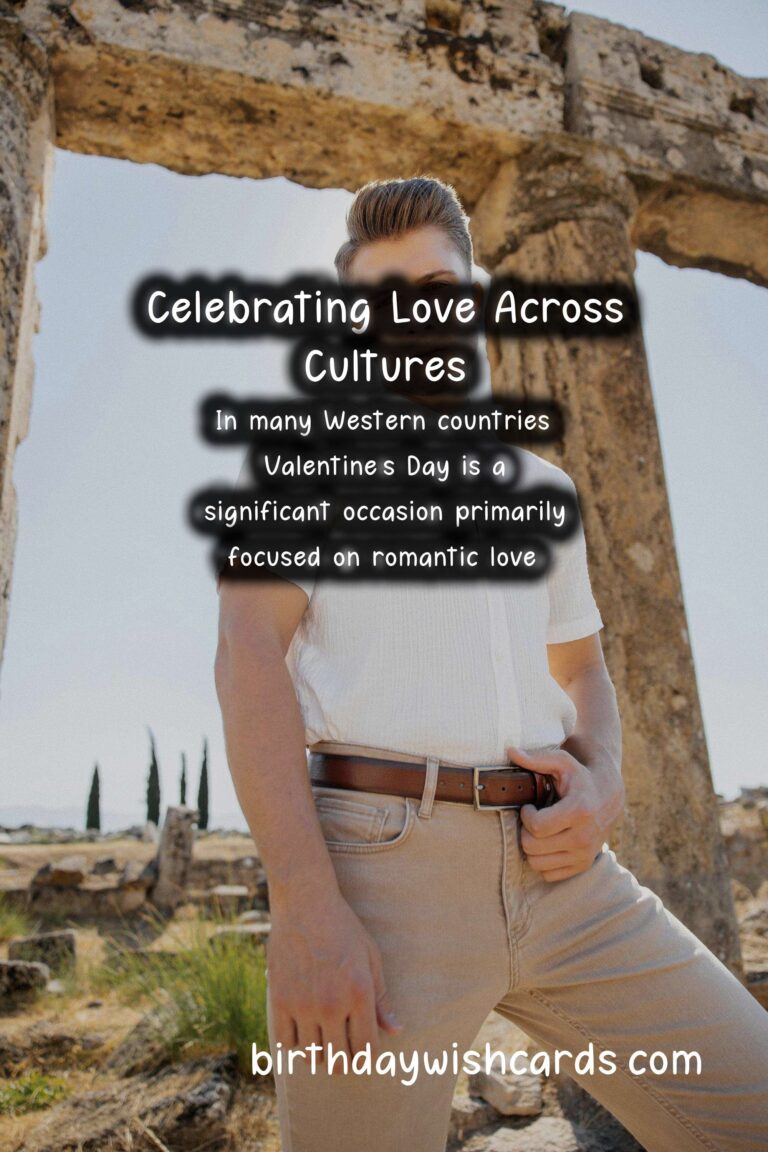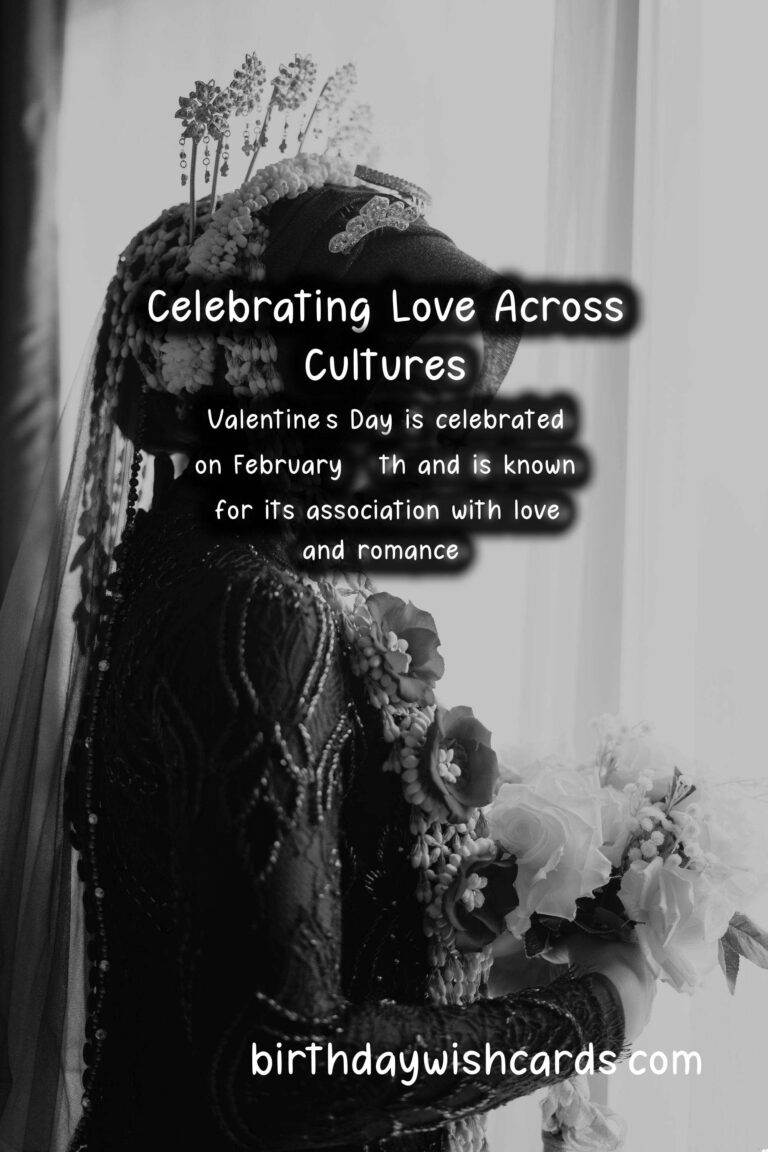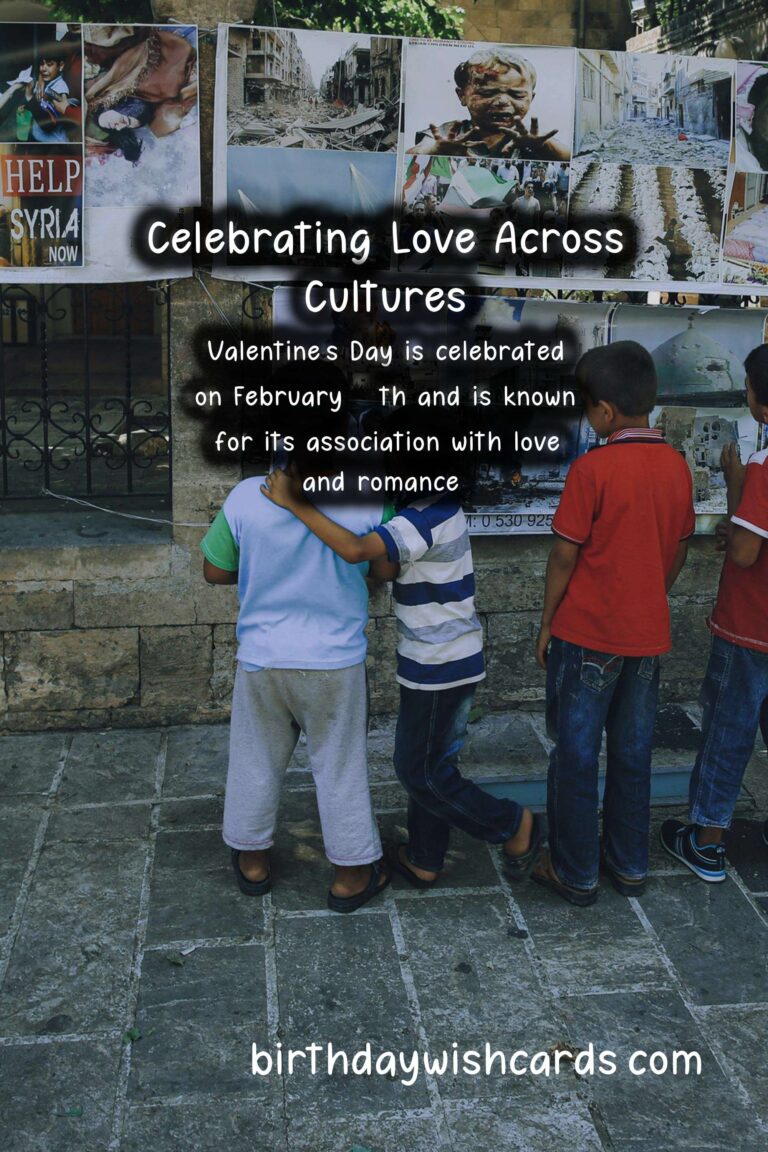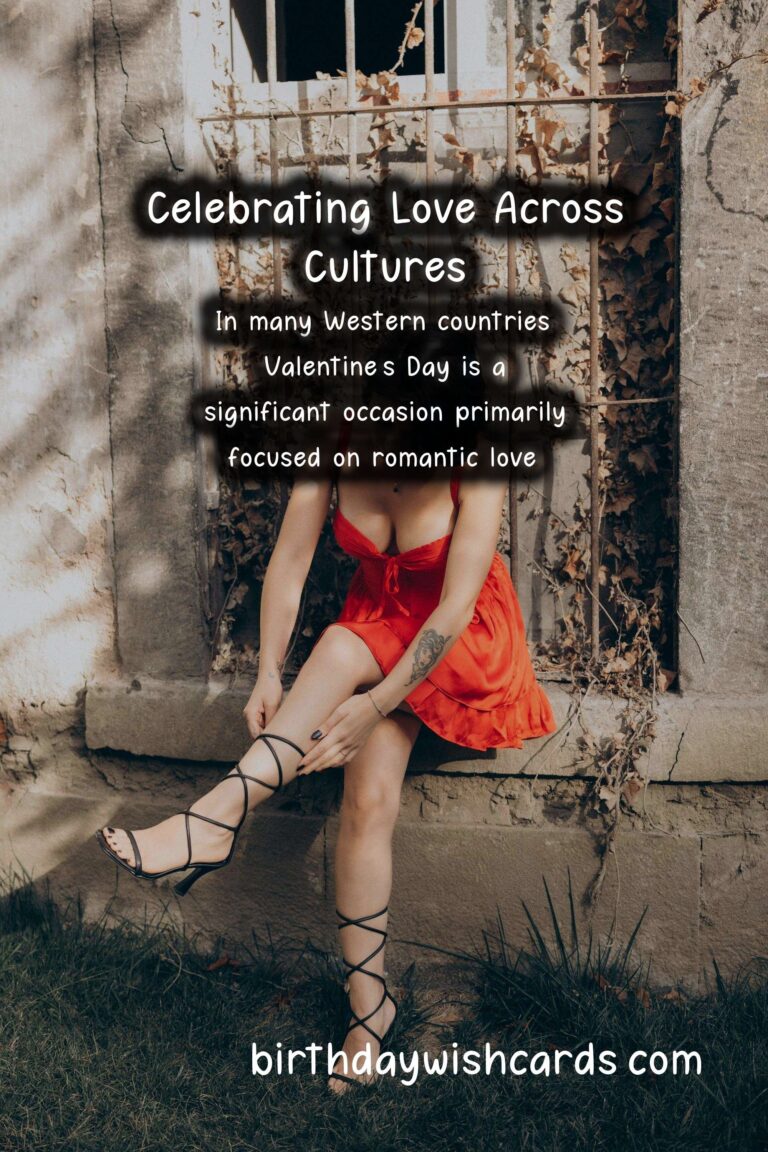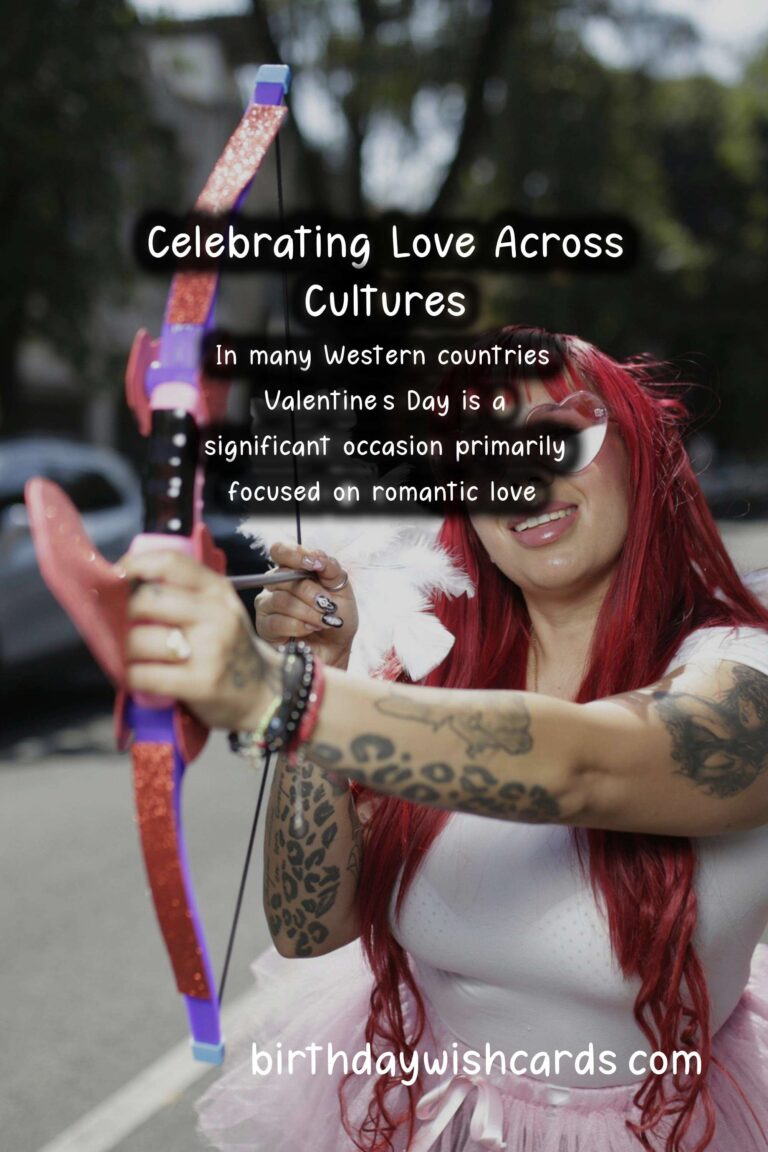
Valentine’s Day, celebrated on February 14th, is known for its association with love and romance. However, its significance varies across different cultures around the world. In this article, we explore how various societies observe this day, the customs associated with it, and the broader implications of love that extend beyond romantic relationships.
Historical Background of Valentine’s Day
The origins of Valentine’s Day trace back to ancient Rome. It is believed to be named after St. Valentine, a Christian martyr. The day has evolved significantly from its early religious connotations to a more commercial and secular celebration of love.
Valentine’s Day in Western Cultures
In many Western countries, Valentine’s Day is a significant occasion primarily focused on romantic love. Couples often exchange gifts, such as flowers, chocolates, and cards. The most popular gift item is the red rose, symbolizing love and passion.
In the United States, Valentine’s Day has evolved into a major commercial event, with an estimated $27 billion spent on the holiday annually. It is not only a day for couples but also for friends and family to express love and affection.
Valentine’s Day in East Asian Cultures
In countries like Japan and South Korea, Valentine’s Day has unique customs. In Japan, women typically give chocolate to men on February 14th, a gesture known as ‘giri-choco’ (obligation chocolate) for colleagues and ‘honmei-choco’ (true feeling chocolate) for romantic partners.
Men reciprocate on a separate day known as White Day, celebrated on March 14th, where they give gifts of equal or greater value. This exchange reinforces the idea of mutual affection.
Valentine’s Day in Latin America
In many Latin American countries, Valentine’s Day is known as ‘Día del Amor y la Amistad’ (Day of Love and Friendship). It is a celebration of both romantic relationships and friendships, emphasizing a more inclusive approach to love.
In Colombia, for example, friends also exchange gifts, and it’s common to see public displays of affection. The spirit of the day transcends romance, as people celebrate all forms of love.
Valentine’s Day in Middle Eastern Cultures
Some countries in the Middle East, like Bahrain and Lebanon, have embraced Valentine’s Day, while others view it as an import influenced by Western culture. In Lebanon, Valentine’s Day is widely celebrated, and it’s common for couples to dine out at restaurants or gift each other jewelry.
However, in more conservative regions, the day may be met with skepticism, as expressing love can be viewed through a different cultural lens. As globalization increases, the varying perceptions of Valentine’s Day continue to evolve.
Valentine’s Day in Africa
In many African nations, Valentine’s Day is celebrated primarily in urban areas. Countries like South Africa have adopted Western customs, with couples exchanging gifts and cards. In contrast, other regions focus more on community celebrations and expressing familial love.
In Ghana, for instance, the day is marked with celebrations of friendship, where friends gather to share meals and gifts, emphasizing the importance of community over individual romantic relationships.
The Role of Valentine’s Day in Modern Culture
In recent years, Valentine’s Day has also become a platform for social activism, with movements advocating for love in broader terms. Campaigns promoting awareness for issues such as LGBTQ+ rights and mental health often utilize this day to spread messages of love and acceptance.
This shift signifies that while Valentine’s Day retains its romantic foundations, its significance is gradually expanding to include various forms of love and compassion.
Conclusion
Valentine’s Day serves as a reminder of the importance of love in all its forms. While Western interpretations often dominate discussions about the holiday, recognizing the diverse ways it is celebrated around the globe enriches our understanding of cultural expressions of affection. Love is a universal language, one that transcends borders and cultural divides.
As we celebrate Valentine’s Day, let us embrace the variations in tradition and meaning, honoring not just romantic love but also the bonds of friendship, family, and community.
Valentine’s Day is celebrated on February 14th and is known for its association with love and romance. In many Western countries, Valentine’s Day is a significant occasion primarily focused on romantic love. 
